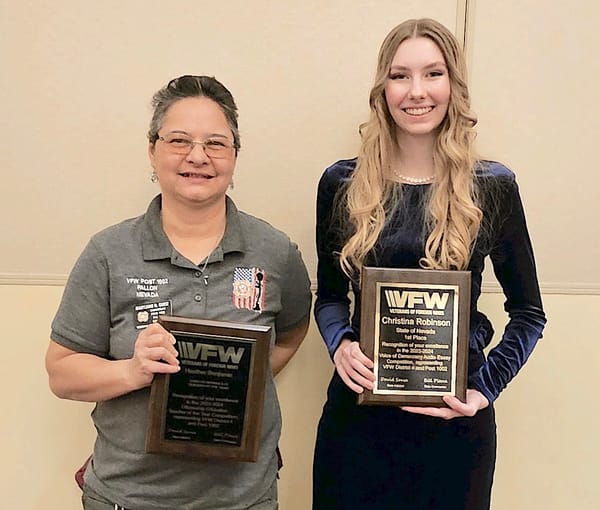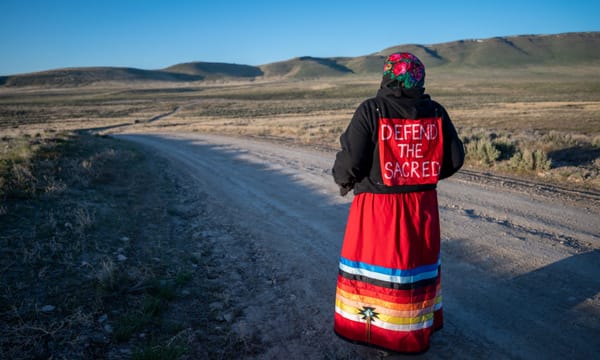Local officials call for awareness as bears emerge from hibernation

LAKE TAHOE—A coalition of local agencies is reminding residents and visitors of the Lake Tahoe region to be bear aware this spring as the animals emerge from hibernation and begin to look for food. The interagency effort includes the California and Nevada state parks and wildlife agencies, sheriff’s departments in Placer, El Dorado and Washoe counties, the U.S. Forest Service and Tahoe Regional Planning Agency, who are all working to reduce bear and human interactions and promote the health and safety of the region’s bear population.
Bears increase feeding activity to fatten up before their winter hibernation, wildlife officials note, but after months of living off of those fat stores they emerge on the lookout for easy food sources to help rebuild those reserves.
One of those easy food sources is fresh grasses, which can include area lawns. Officials say that brings bears into human occupied areas and increases the potential not only for human interactions but for bears to get into unnatural food sources including garbage.
“The California Department of Fish and Wildlife would like to remind both visitors and residents that the Lake Tahoe Basin is home to hundreds of black bears. Unfortunately, it only takes a few careless people to help make a bear accustomed to human food sources,” said Jason Holley, supervising wildlife biologist for the department’s North Central Region. “We ask for your help to keep Tahoe’s bears wild. Do not feed or approach wildlife and please store food and garbage appropriately.”
While bears getting into garbage is a nuisance, it can also harm the environment and the bears.
Biologists say bears help spread berry seeds through their scat, transport pollen, eat insects and provide other essential functions of nature. When they eat human food and garbage, bird seed, pet food, coolers and other sources of human food, the Tahoe Basin loses the benefits bears offer to its natural processes.
Eating human trash also poses a threat to bears, who often unknowingly consume indigestible items such as paper products, foil, plastics and metal which can damage their internal systems and lead to death.
A list of tips to keep Lake Tahoe’s bear population safe advises:
- Never feed wildlife.
- Store all garbage in and properly close bear-resistant garbage containers, preferably bear boxes. Inquire with local refuse companies about bear box incentives and payment programs. Visit https://southtahoerefuse.com/bear-info/ and/or www.ndow.org/Nevada_Wildlife/Bear_Logic/ for more information.
- Never leave leftovers, groceries, animal feed, garbage or anything scented in vehicles, campsites, or tents.
- Be sure to always lock vehicles and close the windows. Keep in mind eating in the car leaves lingering food odors that attracts bears.
- Keep barbecue grills clean and stored in a garage or shed when not in use.
- Keep doors and windows closed and locked when the home is unoccupied.
- Vegetable gardens, compost piles, orchards and chickens may attract bears. Use electric fences where allowed to keep bears out. Refrain from hanging bird feeders.
- When camping, always store food (including pet food), drinks, toiletries, coolers, cleaned grills, cleaned dishes, cleaning products, and all other scented items in bear-resistant containers (storage lockers/bear boxes) provided at campsites. Bear resistant coolers that come equipped with padlock devices should always be locked to meet bear resistant requirements.
- Always place garbage in bear-resistant dumpsters in campgrounds or in bear-resistant containers at campsites (storage lockers/bear boxes), and close and lock after each use.
- Store food in bear-resistant food storage canisters while recreating in the backcountry.
- Give wildlife space, especially when they have young with them.
- Leave small bears alone, mom might be right around the corner.
Human-bear conflicts in California should be reported to the California Department of Fish and Wildlife at 916-358-2917 or report online using the Wildlife Incident Reporting (WIR) system at apps.wildlife.ca.gov/wir. Non-emergency wildlife interactions in California State Parks can be reported to public dispatch at 916-358-1300.
To report human-bear conflicts in Nevada, contact Nevada Department of Wildlife at 775-688-BEAR (2327). If the issue is an immediate threat, call the local sheriff’s department or 911.
More information on peacefully coexisting with bears is online at TahoeBears.org.
Agency wildlife experts can also provide additional information:
California Department of Fish and Wildlife: 916-358-2917
California State Parks: 530-525-9535
Nevada Department of Wildlife: 775-688-BEAR (2327)
Source: U.S. Forest Service





